“Increased” taxes, Burundian currency depreciation… are some causes of a slow movement of Congolese traders at Rumonge port. As a result, trade has slowed down for more than two months.
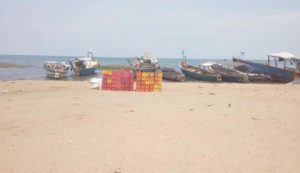
One of the ten boats on the shore of Lake Tanganyika being unloaded of a few boxes of fish and empty racks of “Primus” beer.
It is around 10:00 a.m. in Rumonge port, southern province of Burundi. On 10 September, a dozen boats that are on the shore of Lake Tanganyika, one boat is being unloaded with few boxes of fish and empty racks of beer including “Primus, Amstel and Bock” from the Democratic Republic of Congo. Nearby, porters are busy unloading timber in transit from the DR Congo. Sellers of food products and clearing agents have nothing to do.
Traders met in Rumonge port regret that cross-border trade is slowing down. “There have been no goods in these recent days” says a trader adding that Congolese businessmen who used to bring in a large quantity of fish, palm oil, charcoal and cassava flour to Burundi have come in twos and threes since the past two months.
P.K., another trader operating in Rumonge, says that high taxes on food products and the new taxes imposed on boats carrying goods and people are the main motives behind the decline of traffic.
A boat carrying goods and people must pay $ 65 without passengers. And if it carries passengers, it must add 5% of the passenger ticket.
According to him, these increased taxes discourage Congolese traders to come to sell their products in Burundi.
As for T.S., another trader, this slowdown in commercial activities is also caused by the relocation of Rumonge market. “It was moved at a kilometer away from the port, five months ago.
Previously, Congolese traders sold their products as soon as they arrived”, he says. “Now, we have to pay the porters if they do not get merchants who come to stock up in the port.
The depreciation of the Burundian currency is another reason advanced by these traders. According to them, Congolese traders now prefer to sell their fishes in the regions of Baraka, Uvira or Massissi where gold is exploited. “Their products are bought in dollars,” he says.
That merchant indicates that Congolese businessmen carry boxes of Primus beer in large quantities and other products except food products on their return. He however says “there are administrative measures prohibiting the sale of BRARUDI products without the approval of the company.”
Contacted, Brarudi Company explains that it allows the export of “Amstel” beer 65 cl and Bock.
Remy Ndayishimiye, advisor in external communication and sustainability development at Brarudi says the measure aims at protecting the DRC brewery Company which produces “Primus” beer and soft drinks. He says two businessmen operating in Rumonge Province export these two categories of drinks (Amstel and Bock). They don’t go beyond 1,500 boxes per turn: “It is often two rounds per month”.
Port authority reassures
Simeon Obède Niyuhire, head of the port, maritime and railway authority at the port of Rumonge, dismisses the explanations of traders: “The slowdown in cross-border trade has nothing to do with the taxation on boats carrying goods and people”. He says this measure has been in effect for more than five months. He explains this slowdown by a shortage of fish from the DRC as a result of global warming over the past two months. “The Congolese have great benefits of selling their goods in Burundi, because there are no cities on the other side and the roads are not accessible like in Burundi”.
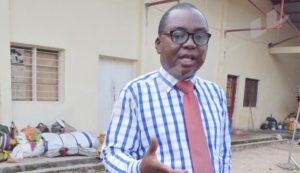
Juvénal Bigirimana: “Congolese traders have nothing to sell for the moment.”
Mr. Niyuhire also says the breakdown in imports of salt and cement from Tanzania and Zambia for more than two weeks has caused the decline in traffic in Rumonge Port. “There are maybe some changes between Tanzanian importers and Indian producers to get new contracts”, says Niyuhire.
He says five to eight boats full of goods and people would daily arrive in Rumonge port every day before this break. He expects that imports of salts and cement would resume by 15 September.
Juvénal Bigirimana, Rumonge governor says the Congolese traders have nothing to sell for the moment. “The large quantity of fish sold in Rumonge port comes from the DRC” he says. The governor, however, says the relations between Burundi and the DRC are good despite the slowdown in commercial activities in the port.
Substantial fall in revenue collected at Rumonge port
This slowdown in trade has led to higher prices for some products, especially salt and palm oil. According to traders, a 25kg bag of salt has moved from BIF 13,000 to 23,000. A can of palm oil of 20 liters, which cost BIF 35,000 two months ago, can be bought at BIF 45,000.
Félix Nkurunziza, director of customs operations at Burundi Revenue Authority says the revenue collected in Rumonge port in July fell by 80% compared to the previous month, then a 20% rise in August. “This drop is due to the interruption of imports of salt and cement for the last two months,” he says.
Concerning the slow movement in cross-border trade, Mr. Nkurunziza says it has been observed for over a year: “We don’t know the major causes”. Regarding the taxation of food products, he assures that there has been no change.

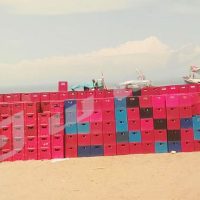
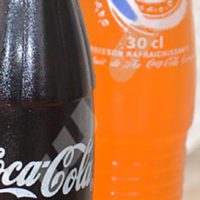

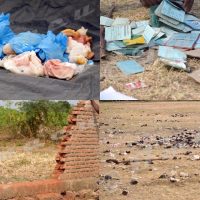
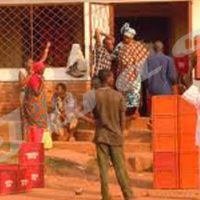













 IWACU Open Data
IWACU Open Data

